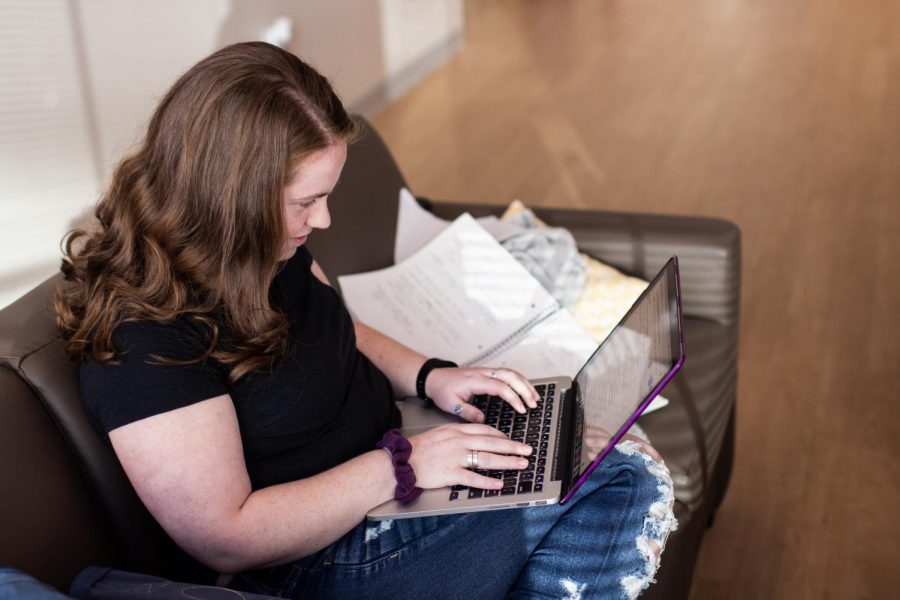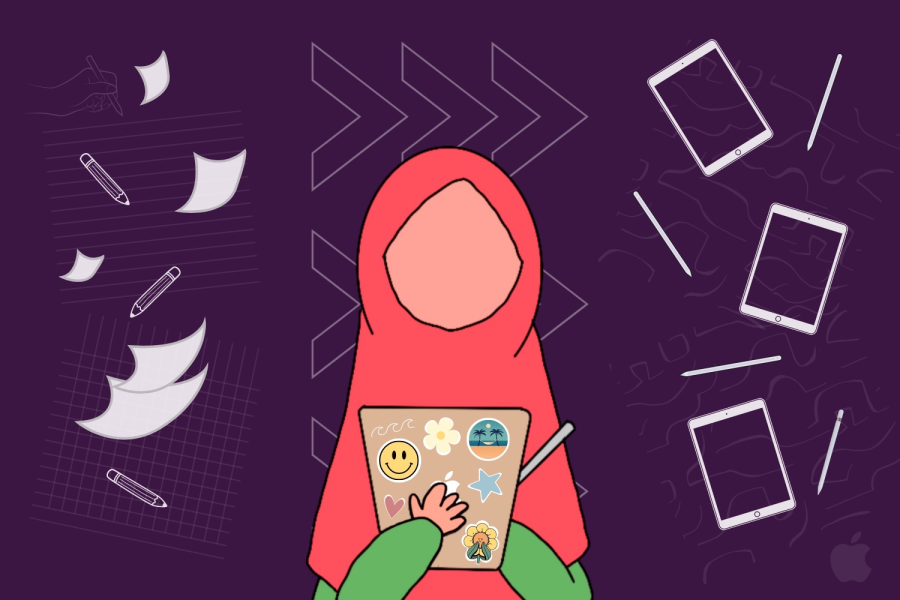Remember that time you frantically searched your backpack for the homework worksheet you could’ve sworn you completed? I sure do. With so many assignments, notebooks and textbooks, it’s easy to become disorganized and have your backpack turn into a hoarder’s utopia. To combat this, students have turned to technology to condense all of their school necessities. Instead of traditional notebooks and textbooks, many students are now using tablets (such as the iPad or Microsoft Surface) paired with a stylus for all of their schoolwork.
“With my iPad I can easily keep my notes in one place and have easy access to what I want to look up,” first-year Nimi Adesanya said.
Not only do tablets help students become more organized with their schoolwork, they also reduce the time it takes to write down notes, allowing for more time spent studying. Specialized apps, such as Goodnotes and Notability, allow students to hand-write notes as if they were in a physical notebook. The apps come equipped with multicolored pens and highlighters, while the user interface makes it easy to edit your notes to your liking.
“I can have my textbook alongside my notes and copy the diagrams and paste them onto my notes, so I don’t have to physically draw everything out,” Adesanya said. “I’ve noticed that taking notes is a shorter process for me now. I don’t have to get all my highlighters, all the colors are right there [in the app], it’s easy.”
Although there are many pros to making the switch to tablets, some students aren’t convinced.
“I feel like I wouldn’t [use a tablet] just because I’m bad at using technology,” first-year Wendy Bai said. “I like having my notes laid out just how I want to see them, without any constraints on what my formatting looks like.”
Another significant drawback to using tablets is the cost of the device. Compared to notebooks, which can easily be purchased for under $5, tablets can range up to $800 (not including a stylus and note taking apps). This has caused some students to feel uncomfortable with their tablet-using peers as it displays their differences in financial status.
“When I would go to classes and have people that used tablets, I don’t want to say I looked at them differently, but it was like, ‘Oh, you have that. You can afford to use that as a learning tool, and I can’t.’ And so I think that’s one of the reasons why I haven’t started using [my iPad],” first year Arianna Santiago said.
If you do decide to use a tablet this school year, I’m sure you’re wondering: do my professors have a preference? Although this might change after the “Zoom era,” many teachers have lifted preexisting bans on electronics in the classroom for the time being, citing their importance during a time of online learning.
One such professor is Political Science and European Studies Professor Thomas Schwartz. He said that he understands the necessity of online note-taking in a semester of online classes, but fears it serves as a distraction to students.
“I’m okay if the students can learn it on a tablet, if writing it on a tablet helps, that’s fine,” Professor Schwartz said. “But students are able to use electronics to do other things than pay attention. I also think there’s something to physically writing something down that helps with the memory process.”
Whether or not you plan on taking notes this semester on a tablet or on paper, it’s important to find a note-taking method that works for you. While you’re at it, form a Zoom study group that will keep you on-pace for your upcoming exams. If I see you working diligently on Alumni Lawn or at Central Library, I’ll be sure to give you a wave of encouragement.






